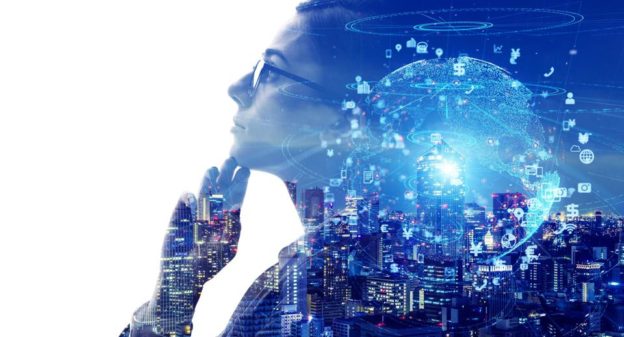India is gradually going forward in establishing artificial intelligence in its various sectors.
The IT sector of India has always been a hub of great minds and it has played a vital role in the economic growth of the country. Around 2018, the government think-tank, National Institution for Transforming India (NITI) Aayog emphasized the development of AI research in the IT sectors. This development came on the heels of the launch of a Task Force on Artificial Intelligence for India’s economic transformation by the Commerce and Industry Department of the Government of India in 2017. Since then, AI is gradually being adopted in every sector of India. Experts’ reviews show that healthcare and agriculture are so far among the most important sectors of focus to improve living conditions for India’s citizens.
The government lends a hand
With the government’s inclination towards initialization, more AI initiatives are taking place and a pool of funds are being created for relevant startups. Mayank Kapur, CTO of Indian AI startup Gramener, explained in an interview that the government is still the largest potential customer for data science services in the country. There have been several public sector initiatives encouraging the spread of AI. The government has initiated a proof of concept pilot in 15 districts (counties) in India to use artificial intelligence-based real-time advisory based on satellite imagery, weather data, etc. to increase farm yields where the farm production levels are low. Another long-term project to build a complete natural language processing platform for Indian languages is in operation. This would aid in the development of several applications, like conversational general and career counseling through chatbots and assistants, conversing in 22 Indian languages.
An interest in AI
The level of interest in learning about AI and implementing it in the business is gradually growing in India. Industries have started working to skill their manpower to enable themselves to compete with other global players. Educational institutions have started working on their curricula to include courses on machine learning and other relevant areas. Individuals and professionals have started acquiring these skills and are comfortable investing in upgrading their skills.
“Indian society is not as forgiving to failure in entrepreneurship as the US or Europe”
Dr Nishant Chandra, the Data Science Leader of the Science group at AIG started so in an interview while talking about the high stakes of failure in India. The established startup leaders like Mr Professor Manish Gupta, CEO of VideoKen has described that there is a trend of copying the ideas in the AI market of India, which prevents the Indian potential from flourishing and participating in the global market.
What the future holds
The learning phase of the AI sector in India is evident given the state of AI adoption in the Western markets and it may last longer in India’s relatively underdeveloped economy. Aakrit Vaish, CEO of Haptik, Inc. also seems to suggest that in the next 10 years, the understanding of AI and how it works will potentially be more commonplace among most technical industry executives. He thinks that India may go in the direction that China has gone, become their economies. There are probably going to be pockets, Bangalore might be good at deep tech like robotics or research / Hyderabad being good at data/ AI training, Mumbai being good at BFSI and Delhi for agriculture and government. Like China, most solutions will probably be applied to the local economy.
Komal Talwar from the Government of India’s AI Task Force has stated “We think AI could have a great impact in the health sector. There is a scarcity of good doctors and nurses, with AI the machine can do the first round of diagnostics. Staff can carry machines with them to help cut down on the physical presence needed for doctors.” According to her, the government is encouraging startups to have AI applications that have a social impact (AI in health, AI in education, etc), where startups compete to solve social problems.
https://www.analyticsinsight.net/india-moves-forward-in-the-race-of-artificial-intelligence/





